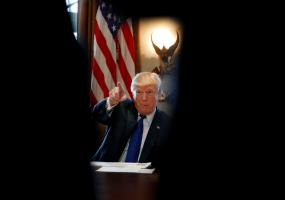With digital television switchover, free-market arguments “can no longer be casually dismissed”
26 Sep 2012
Digital television switchover – to be completed in the UK next month – means that arguments for a more lightly regulated television market with a much smaller BBC or subscription-funded BBC can no longer be casually dismissed as impractical, according to a new report by the Reuters Institute (RISJ).From October 24th all UK television will be digital, largely removing spectrum constraints on the number of channels and broadcasters, and making conditional access technology (essential for subscription TV) universally available at low cost. For the first time, there will be therefore be no major technical or economic barrier to a fully commercial television market funded by subscriptions and advertising. The report, by Prof Patrick Barwise of London Business School and RISJ and Prof Robert G. Picard, Director of Research at RISJ, argues that this switch will force policy makers to confront the prospect of a free market – something long advocated by some economists such as Prof Sir Alan Peacock and some commercial broadcasters such as James Murdoch. Their economic arguments need to be clearly understood, as do those of economists with differing views if effective policy choices are to me made. The new report, The economics of television in a digital world: What economics tell us for future policy debates, explores the economic factors underlying television and the policy arguments that emanate from them. It shows how technology and policy changes have altered the UK broadcasting market since the advent of BBC Radio in the 1920s and the first experimental TV broadcasts in 1932. It analyses how changes in policy have altered UK broadcast economics, the different economic bases of licence-fee-funded, advertising-funded and subscription-funded television, and how these compete and coexist. It then discusses how the current changes in television distribution are, and are not, altering the industry's economics and structure. The report distinguishes between two categorically different digital TV domains: digital switchover (from analogue to digital broadcast television) and digital convergence (the potential migration of TV distribution onto the internet). The implications of these conclude that, somewhat paradoxically, although digital switchover is the culmination of a long-term evolution (towards more and more channels, widely available conditional access technology and increasingly powerful time-shifting technology – from VCRs to digital video recorders), its potential implications are revolutionary and immediate. Conversely, digital convergence potentially represents a revolutionary change in the way television is distributed and consumed, but its immediate policy implications are quite limited by the rate of change and because good programmes will remain a scare resource and the main policy issue will still be to ensure their range, quality, availability and affordability. According to the authors, it is therefore digital switchover that raises the most immediate policy issues, but policy-makers should also monitor the pace of change of digital convergence.





